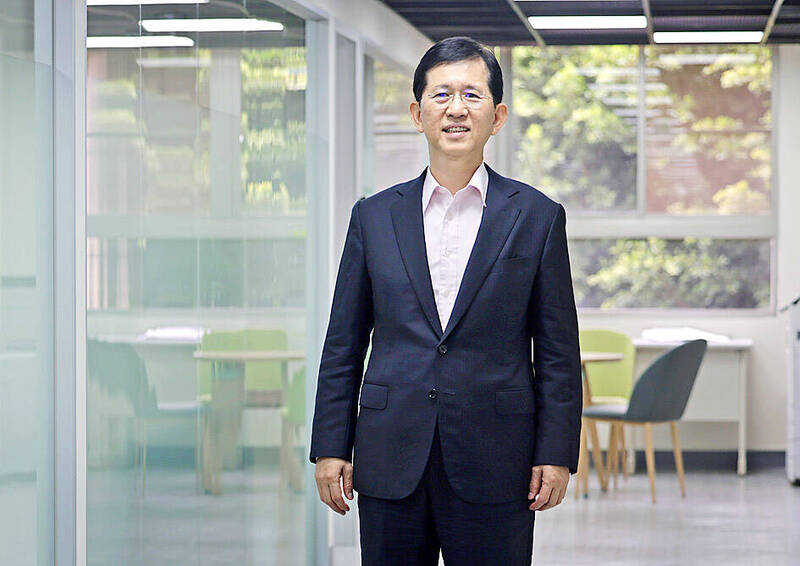《TAIPEI TIMES》New minister targets Taiwan’s digital economy over NT$1 trillion

Minister of Digital Affairs Huang Yen-nun poses for a photograph at the ministry in Taipei on Tuesday. Photo: CNA
By Jake Chung / Staff writer, with CNA
Minister of Digital Affairs Huang Yen-nun (黃彥男) yesterday presented his plan to increase the value of Taiwan’s digital market economy to more than NT$1 trillion (US$30.98 billion) within two years.
The Ministry of Digital Affairs’ role is to encourage profit, and as such, its policies should be geared toward assisting with industrial growth, Huang said in an interview with the Chinese-language Central News Agency.
With a global focus on the digital economy, Taiwan should play to its strengths, which would be industries related to artificial intelligence (AI), he said, adding that they remain his priority.
Huang said he has three main policies, the first of which is fostering AI “eco-parks” as government measures to develop a digital economy.
He has discussed with National Development Council Director-General Paul Liu (劉鏡清) what incentives would attract foreign and local AI companies to invest in such parks, Huang said.
While the policy is still under discussion, the goal is to have one eco-park in the south and one in the north of the nation, he said, adding that the ministry considers this a vital policy point and hopes to complete all planning by the end of the year.
The ministry is encouraging the Taiwanese information security industry to seek opportunities abroad, Huang said.
Taiwan’s strengths lie in combining software and hardware in one cohesive product, for example, possibly by integrating information security with the Internet of Things, which would help create a digitally secure cloud service that users feel more secure using, he said.
“Software is everything in the future,” Huang said, adding that Taiwan would acquire significant business if it could create packaged solutions applicable to the agricultural, medical and manufacturing sectors.
The second policy is to prevent scamming by having the ministry create a Web site that identifies whether a number belongs to scammers, he said.
The third is to build up information security resilience, Huang said.
He has been sent proposals to amend the Cybersecurity Management Act (資通安全法), which would empower the ministry’s Administration for Cyber Security to inspect the level of information security at government offices, Huang said.
Backing up information to the cloud should be encouraged, and encryption technology, including quantum encoding, should be further researched and utilized, Huang said.
The ministry hopes to popularize the concept of “zero trust” and the use of multifactor authentication technologies, which would significantly deter hackers from accessing internal networks even if a password is leaked, he said.
Asked about the US demanding that ByteDance Ltd (字節跳動) divest TikTok’s US assets or face a ban, Huang said that Taiwan would not take the lead on implementing similar policies, but would continue to monitor developments.
However, he said he “hoped it would come to fruition,” as Taiwan could link to TikTok’s US servers.
新聞來源:TAIPEI TIMES













